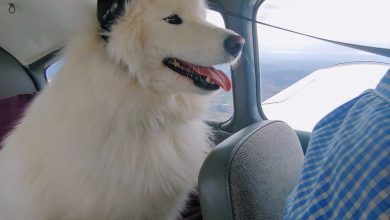How do Dogs act When they are Close to Death

Death is something we have no control over, and as pet owners, it’s something we dread facing with our furry friends. For many of us, our dogs are like family, and the thought of losing them can be incredibly difficult to come to terms with.
However, as much as we wish we could control the inevitable, it’s important to be aware of the signs that our dogs are reaching the end of their lives. By recognizing these signs and providing our dogs with the best possible care and comfort, we can make their final days as peaceful and comfortable as possible.”
How do Dogs act When they are Close to Death?

One of the most common signs that your dog is nearing the end is changes in their breathing. You may notice that your dog’s breathing becomes more labored, or they may experience coughing or wheezing. While not all respiratory changes indicate pain or discomfort, it’s important to consult with your veterinarian to make sure that your dog is comfortable.
Loss of Appetite and Weight Loss in Dogs
Another clear sign of end-of-life symptoms to be aware of in dogs is a loss of appetite and weight loss. As a dog’s body begins to shut down, your dog may lose interest in many types of food and become dehydrated. This can lead to weight loss and malnutrition.
While it’s important to continue offering your dog food and water, it’s also important to recognize when they are no longer able to eat or drink. In some cases, your veterinarian may recommend feeding your dog through a feeding tube or providing other palliative care to keep them comfortable.
Mobility and lethargy are also physical signs of approaching death in dogs. As your dog nears the end of their life, they may become less mobile and spend more time sleeping or lying down.
This can be a difficult symptom to witness, but it’s important to remember that your dog is not in pain and is simply conserving their energy. It’s important to provide your dog with a comfortable, warm place to rest and be close by to offer them comfort and support. I know it’s hard but you have to do it.
Also, Read
- Complete Guide: How to Take Your Dog to Spain with Ease”
- Can You Feed Your Dog Supermarket Meat?
- Are Human And Dog Urine Test Strips The Same?
Behavioral Changes in Dogs in Their Final Days
In addition to physical symptoms, dogs may also exhibit behavioral changes in their final days. One common change is restlessness or anxiety. It is proper for dogs to have anxiety, but in this case, it will be occurring many times a day.
Your dog may also become agitated or restless as they approach the end of their life. This can be due to discomfort, confusion, or fear. It’s important to be patient and gentle with your dog during these moments and to offer them reassurance and comfort.
Another common behavioral change in dying dogs is a decrease in social interaction. As your dog’s energy levels decrease, they may become less interested in socializing with you or other pets in the household.
This can be difficult to witness, but it’s important to respect your dog’s needs and desires during this time.
Providing a quiet, calm space for your dog to rest can be beneficial, as can spending time quietly with them and providing gentle physical touch and reassurance.
Lastly, as your dog approaches the end of their life, they may also experience confusion or disorientation. They may seem unaware of their surroundings or appear to be in a dream-like state.
This can be distressing for both you and your dog, but it’s important to remember that your dog is not in pain and is simply transitioning to the next phase of their journey. Providing a calm, quiet space for your dog to rest can be helpful, as can speaking to them in a gentle, reassuring tone.
Coping with Your Dog’s Emotional Changes as They Near Death
As your dog is near the end of its life, it’s important to recognize that it will experience emotional changes, such as anxiety and confusion.
Our dogs are intuitive creatures, and they may sense that something is different or changing in their environment. Providing them with comfort and reassurance during this time can go a long way in helping them cope.
To help your dog feel more at ease, try to maintain a consistent routine. Keeping to their regular feeding and walking schedule, as well as providing them with familiar toys and bedding, can provide a sense of stability and comfort during difficult times. Additionally, offering them plenty of love and attention can help to soothe their fears and anxieties.
Spending time with your dog, offering physical touch and affection, and speaking to them in a gentle, reassuring tone can all help to provide comfort during their final days.
As the author Cynthia Rylant once said, “Dogs’ lives are too short. Their only fault, really.” It’s important to cherish the time we have with our furry friends and to provide them with the love and support they need as they near the end of their life.
Supporting Your Family and Other Pets During Your Dog’s Final Days
As we know losing a beloved dog can be difficult for the entire family, including other pets in the household. It’s important to provide support and comfort to all members of the family during this time.
One way to support your family and other pets is to be open and honest about what is happening. Discussing your dog’s condition and the options for end-of-life care can help to prepare everyone for what’s to come.
It’s also important to offer emotional support and to listen to the concerns and feelings of family members and other pets.
Another way to support your family and other pets is to involve them in the end-of-life care process. This can include allowing family members and other pets to spend time with your dog and offering them comfort and support. It can also include involving family members and other pets in the decision-making process for end-of-life care, if appropriate.
Lastly, it’s important to be gentle and patient with yourself and others during this time. Grieving the loss of a beloved pet is a natural and normal process, and everyone will grieve in their own way and on their own timeline.
It’s important to offer support and understanding to yourself and others and to allow yourself and others the time and space to process their emotions in their own way.
Conclusion
It’s important to remember that every dog’s experience is unique, and it’s okay to seek support from loved ones or a professional counselor during this difficult time. Grieving the loss of a beloved pet is a natural and normal process, and it’s important to take the time to care for yourself and your emotions as well.






2 Comments